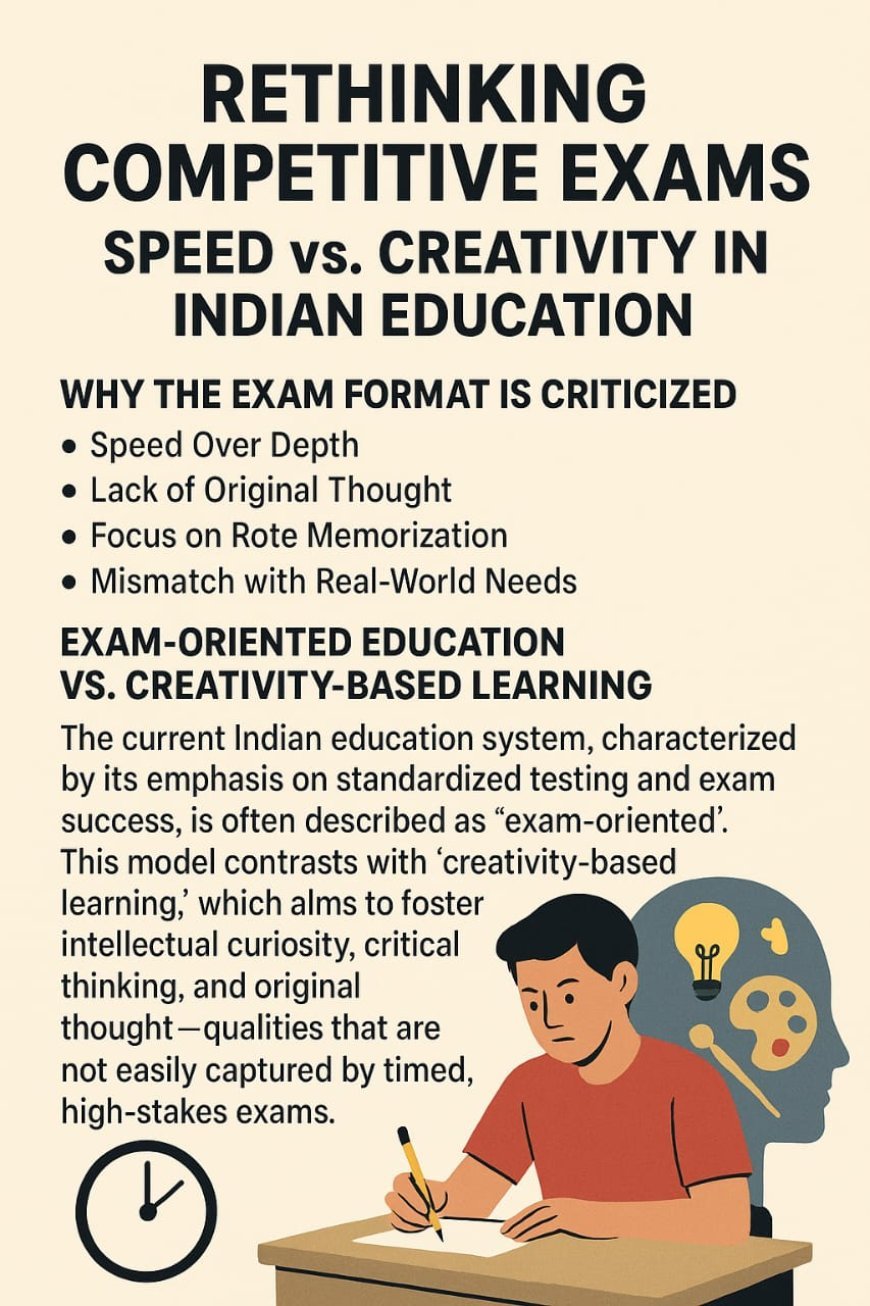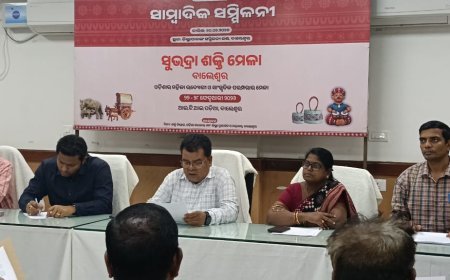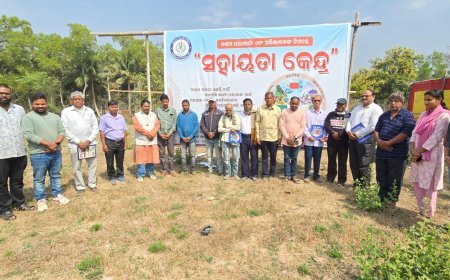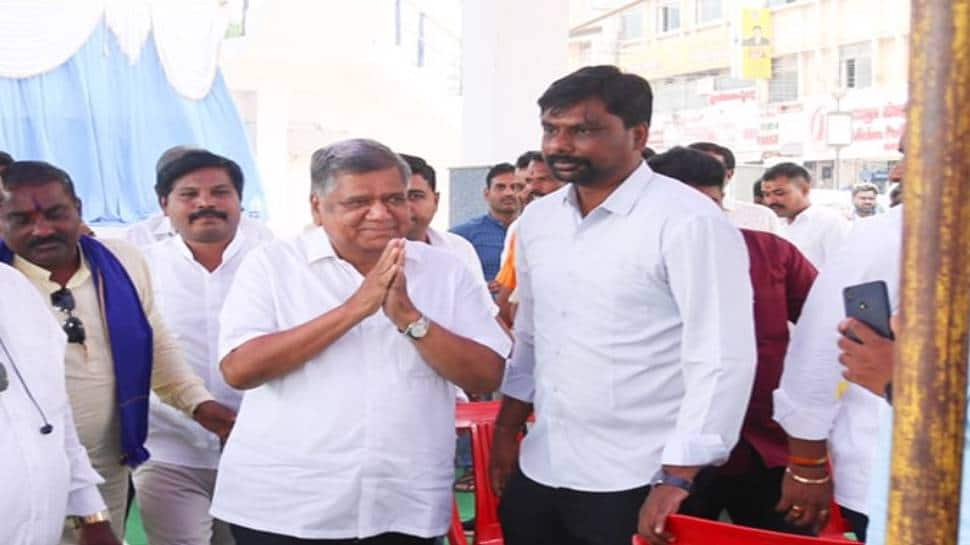Rethinking Competitive Exams: Speed vs. Creativity in Indian Education

Competitive exams like NEET and JEE Main have become the ultimate gateways to higher education in India, determining the academic futures of millions of students each year. Yet, their very format—hundreds of questions to be solved within a tight timeframe—has come under increasing criticism for what it rewards and, more importantly, what it neglects.
Why the Exam Format is Criticized
1. Speed Over Depth
The design of these exams prioritizes rapid recall and time management. Students must answer quickly, often without the luxury of deep reflection. While speed is rewarded, those who think more slowly but deeply—often the ones capable of original insights—find themselves at a disadvantage.
2. Lack of Original Thought
The multiple-choice question (MCQ) format assesses correctness, not creativity. It does not allow students to explore ideas, ask fresh questions, or present innovative solutions—skills that are indispensable for true research and scientific breakthroughs.
3. Focus on Rote Memorization
The high-stakes nature of these exams often forces students into rote learning. Memorizing formulas, definitions, and short-cuts becomes the norm, leaving little room for critical thinking or conceptual clarity.
4. Mismatch with Real-World Needs
Science and innovation rarely reward speed alone. They demand persistence, creativity, and the courage to take intellectual risks. The ability to solve a barrage of MCQs under time pressure hardly reflects the qualities required for long-term research, problem-solving, and innovation in real-world contexts.
Exam-Oriented Education vs. Creativity-Based Learning
The dominance of standardized testing in India has created an exam-oriented education system—a system where success is measured almost entirely by test scores. This model prepares students to perform under pressure but does little to foster curiosity, imagination, or independent thought.
By contrast, creativity-based learning emphasizes exploration, critical thinking, and the nurturing of original ideas. It values the process of learning as much as the outcome, encouraging students not only to absorb knowledge but to question it, reframe it, and apply it in new ways.
The Way Forward
Exams like NEET and JEE are undeniably useful for assessing baseline competencies and maintaining fairness in large-scale admissions. However, relying exclusively on such formats risks undermining the very qualities—innovation, creativity, and problem-solving—that India needs to become a global leader in research and development.
A balanced approach is essential: standardized testing can coexist with alternative assessments that reward originality, conceptual clarity, and creativity. Unless we rethink the structure of these exams, we risk producing graduates skilled at cracking tests but ill-prepared for pushing the boundaries of knowledge.
Sanjay Pattnayak
Sundargarh












































